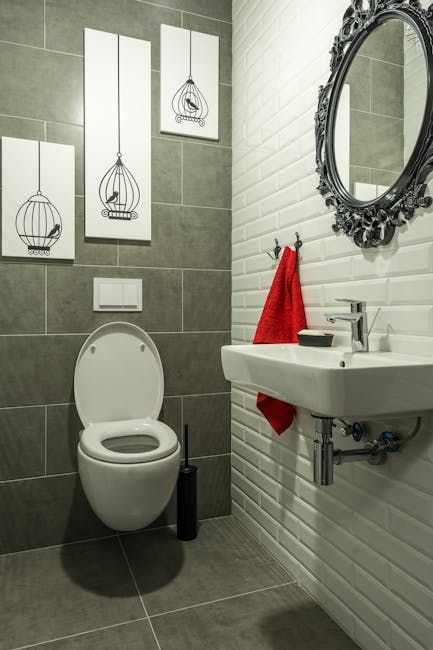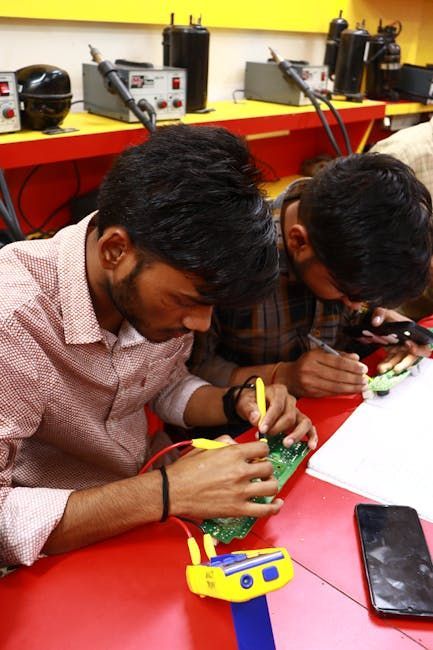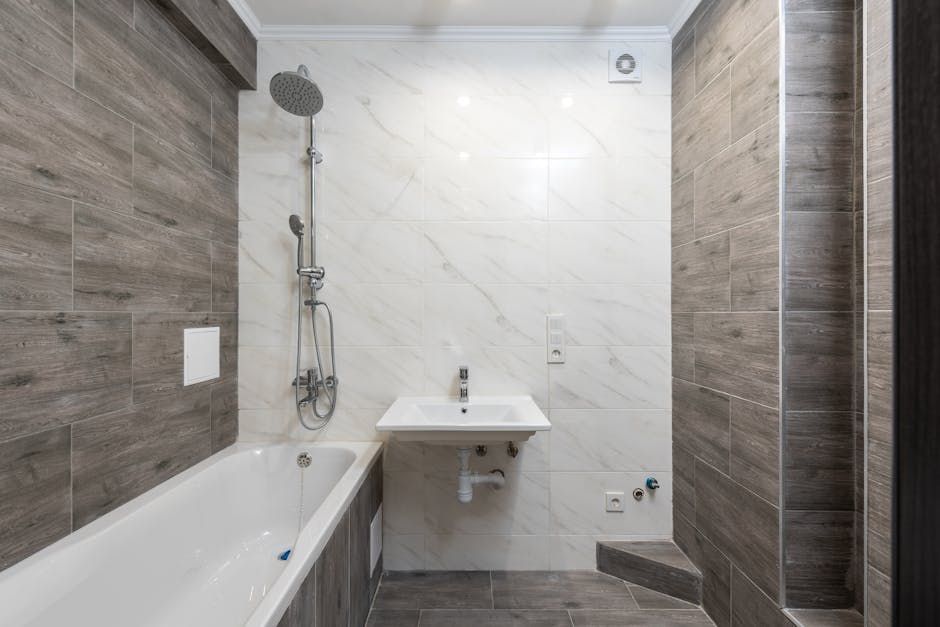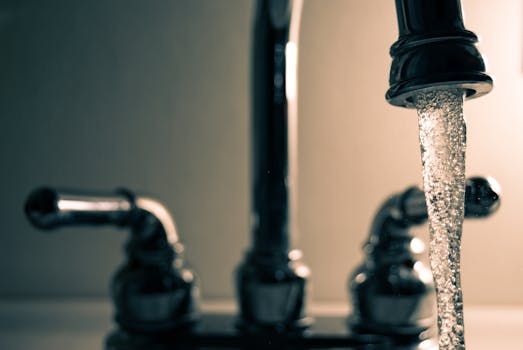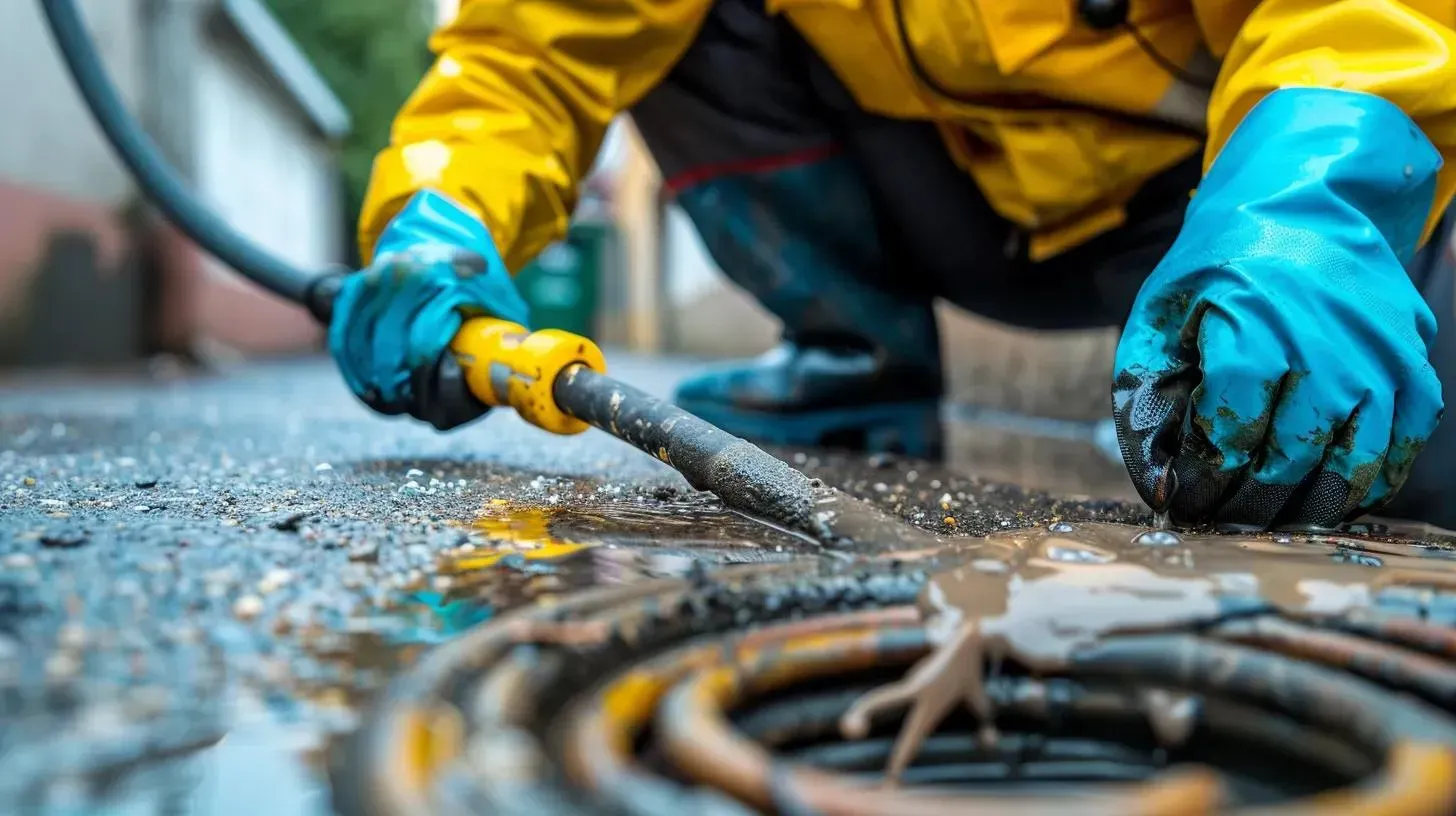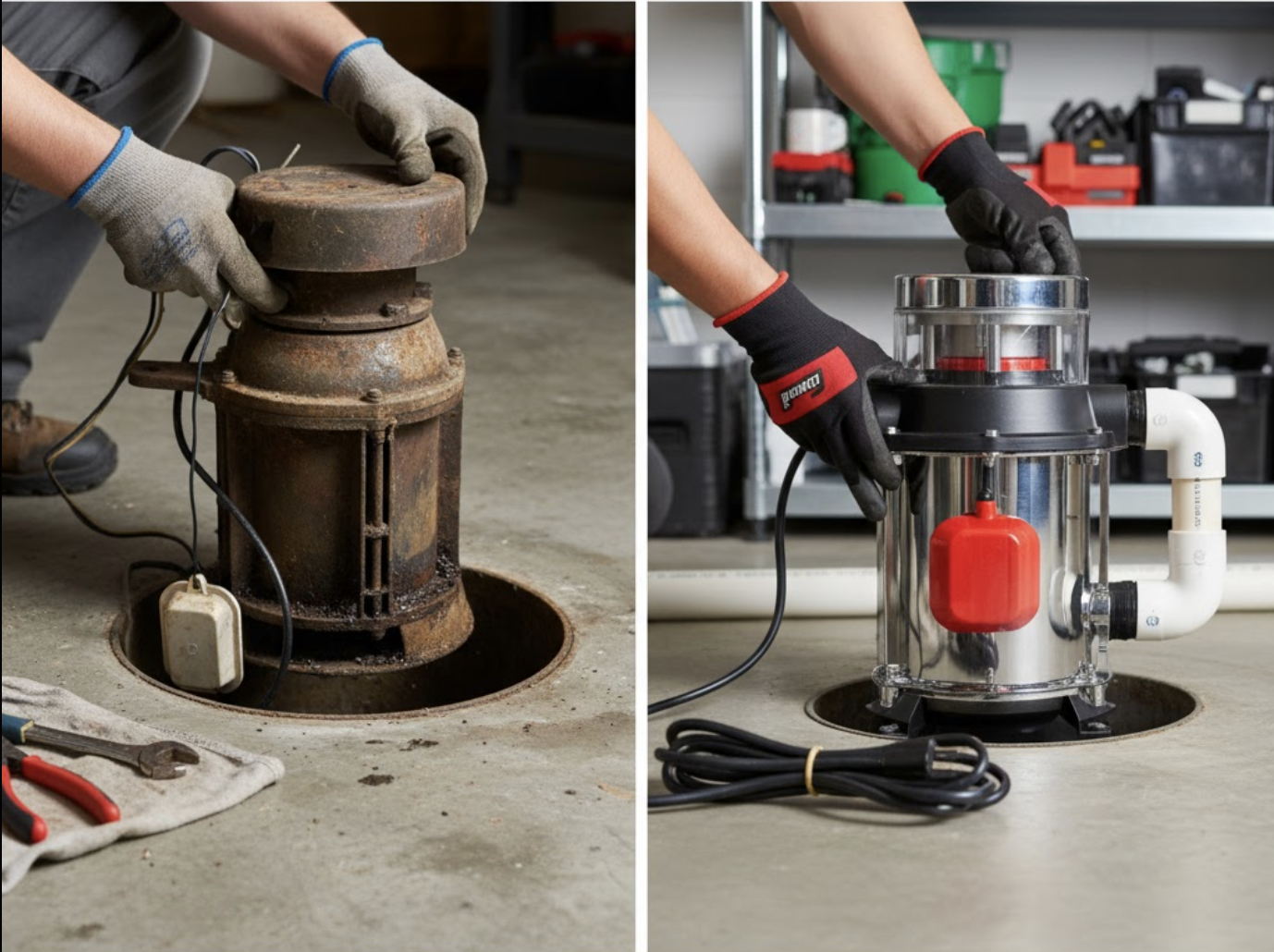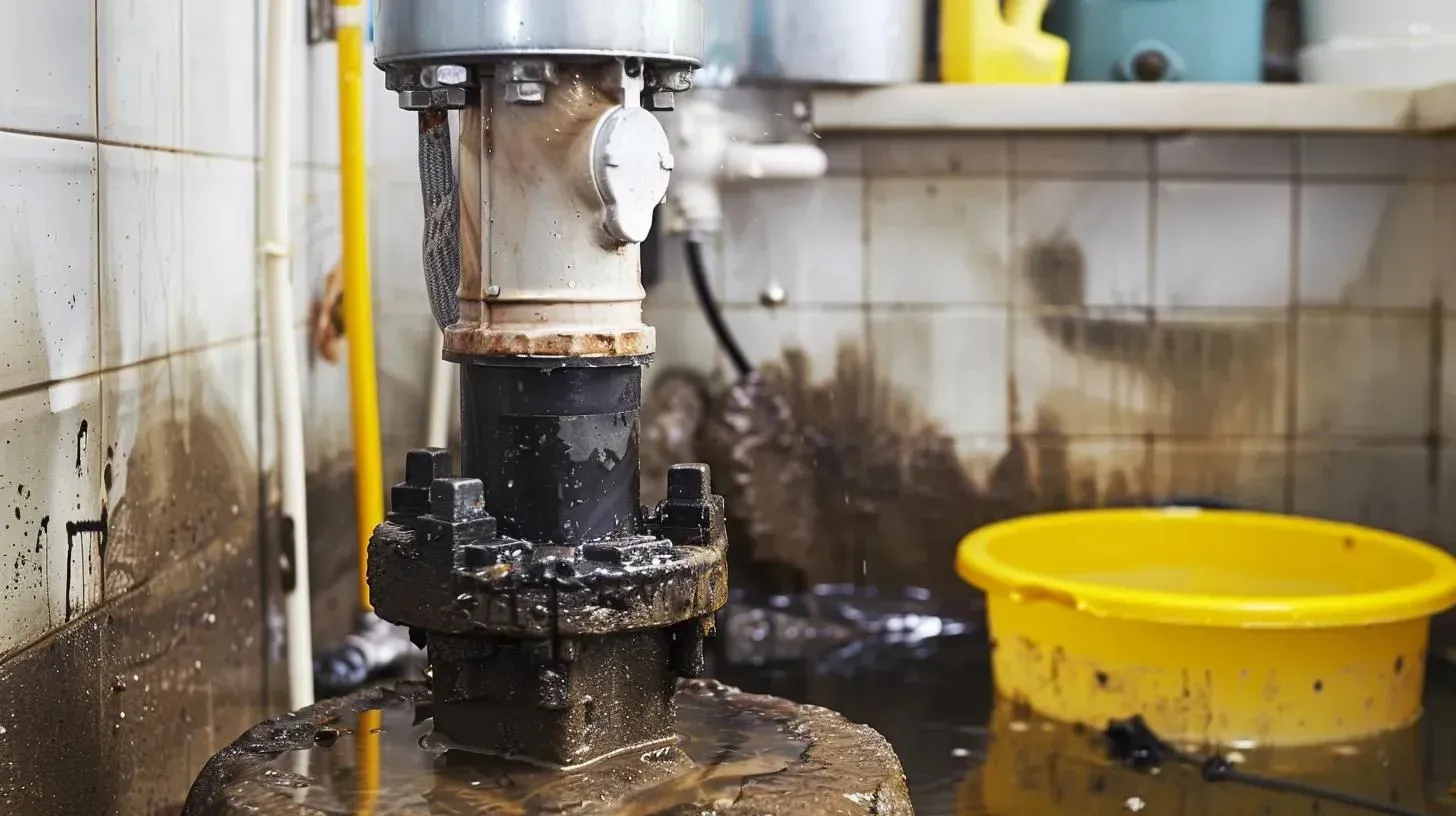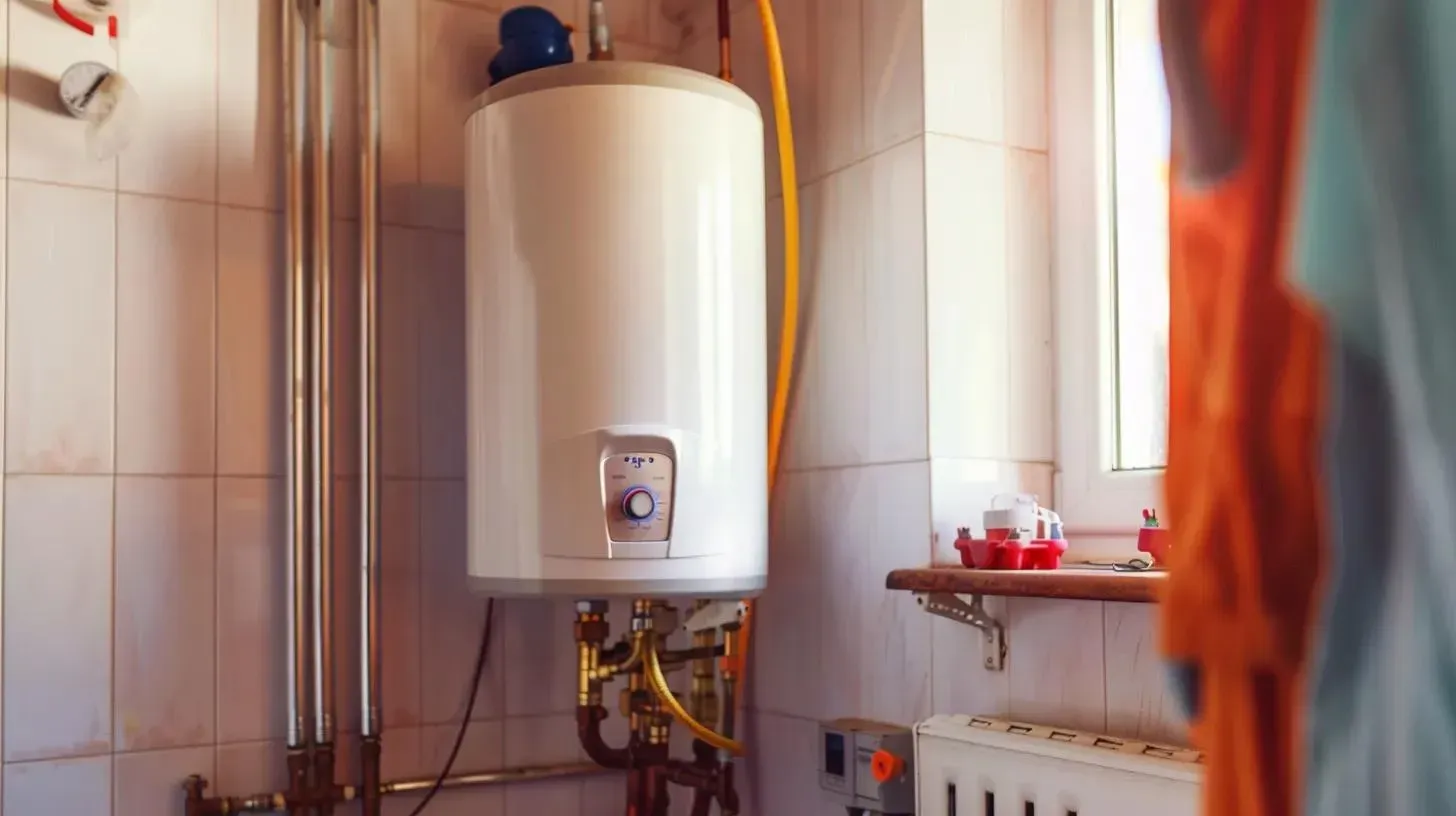Tankless vs Tank Water Heaters: Pros & Cons
Tankless vs. Tank Water Heaters: The Smart Choice for Denver Homeowners
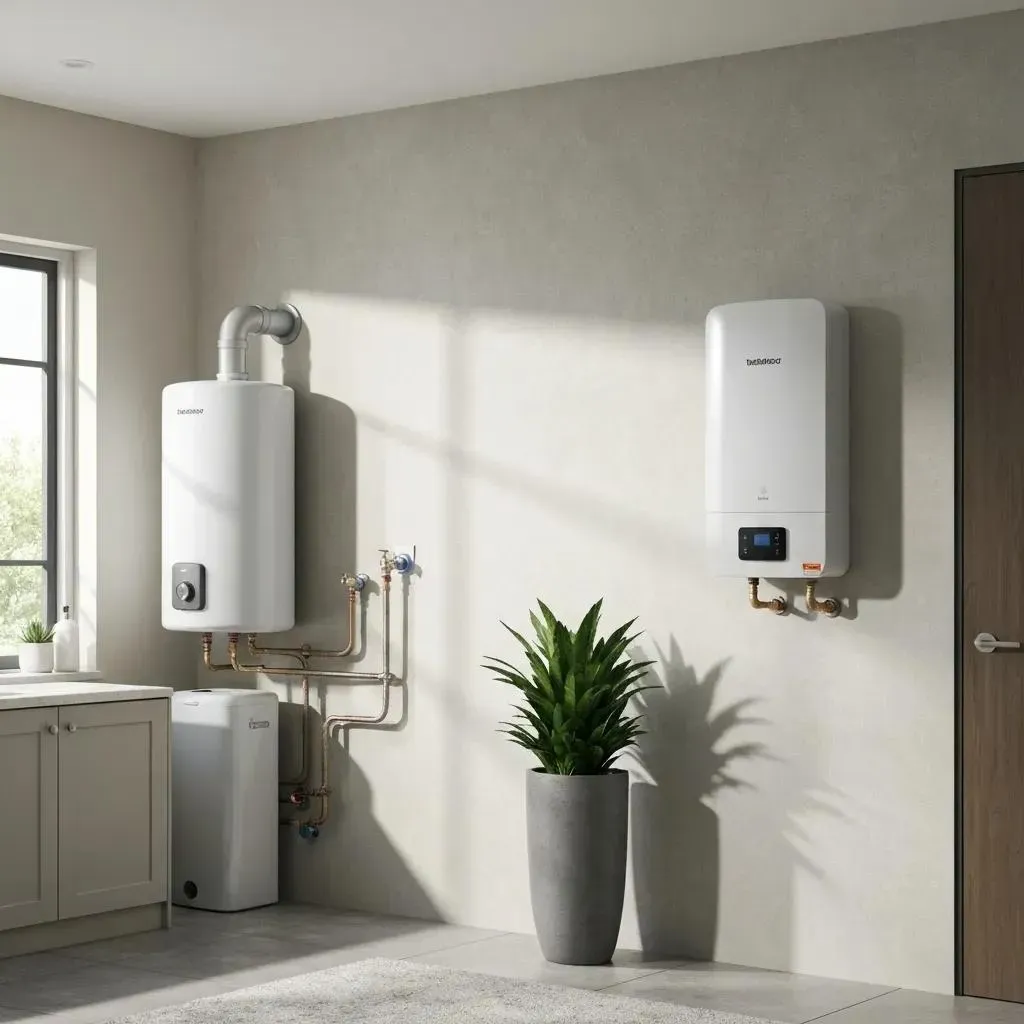
Deciding between a traditional tank water heater and an on-demand tankless system means weighing initial costs, long-term energy savings, how long each unit lasts, and how tricky installation might be. Denver homeowners trying to figure out tankless vs. tank water heaters need clear answers on how each heats water, how they handle Denver’s altitude and weather, and how they fit with your family’s hot water habits. This guide breaks down both systems, compares their costs and efficiency, looks at local rules and any available rebates, covers what’s needed for electric hookups, and shares our expert advice—so you can make the best decision and get a straightforward quote from Accountable Home Services, your 24/7 Denver plumbing experts.
What Are Tank Water Heaters and How Do They Work?
A tank water heater is essentially a storage unit. It heats up a set amount of water and keeps it warm in an insulated tank, ready for when you need it. It uses a gas burner or an electric element to constantly keep the water at your desired temperature, ensuring you have a reliable supply for everyday tasks. For example, a 50-gallon gas tank heater will fire up its burner whenever the water temperature drops below your setting, making sure you have consistent hot water for showers, laundry, and dishes. Understanding this storage and heating process helps us see how tankless water heaters offer a different approach by heating water only when you turn on a faucet.
How Does a Traditional Tank Water Heater Operate?
- A storage heater draws cold water into the bottom of the tank, where a gas burner or electric element heats it up.
- A thermostat keeps an eye on the water temperature and turns the heating source on or off to maintain your set temperature.
- Insulation wraps around the tank to minimize heat loss, keeping your water hot and ready to go.
This method ensures you have plenty of hot water, but it relies on the tank’s capacity and can lead to energy waste from keeping water hot when it’s not being used. This naturally leads us to look at the advantages of these systems.
What Are the Pros of Tank Water Heaters?
Before we dive into the benefits, it’s worth noting that these systems are known for their consistent volume and straightforward operation, making them a great fit for many homes.
- Lower upfront cost means they’re more budget-friendly for most homeowners right from the start.
- Installation is typically simpler, requiring standard gas lines or 240V electrical circuits without needing major upgrades.
- Proven reliability means you can count on a predictable supply of hot water for all your regular household needs.
These strengths help many Denver households keep their hot water flowing smoothly, but understanding their limitations is key to a full comparison of system trade-offs.
What Are the Cons of Tank Water Heaters?
Despite their dependability, storage heaters do have some downsides:
- Standby heat loss means energy is wasted as heated water sits in the tank, waiting to be used.
- Your hot water supply is limited by the tank size, meaning you might run out during back-to-back showers or heavy usage.
- They take up a significant amount of space, often requiring a dedicated spot in utility closets or garages.
- With an average lifespan of 10–15 years, they often need replacing sooner than other options.
Listing these disadvantages helps us figure out when a tank heater is still the best option for local installations.
When Is a Tank Water Heater Ideal for Denver Homes?
Tank heaters are a solid choice for households with predictable hot water needs and moderate usage. Denver residences that are budget-conscious, or don’t have the space for major electrical upgrades, often find simple gas or electric storage systems to be the perfect fit. In older homes that might not have high-amperage electrical service, the straightforward hookup avoids expensive retrofitting. When having a consistent volume of hot water and a lower initial investment are more important than maximizing energy efficiency, a tank water heater remains a practical choice.
How Do Tankless Water Heaters Work and What Are Their Advantages?
Tankless water heaters heat water only when you need it. They do this by passing cold water through a heat exchanger whenever you turn on a faucet or appliance. A gas burner or a powerful electric element kicks in only when water is flowing, completely eliminating standby heat loss and providing an endless supply of hot water. For instance, when you turn on your shower, sensors detect the flow and instantly heat the water to your desired temperature. This on-demand heating method leads to significant energy savings and saves space compared to traditional storage systems.
What Is the Instantaneous Heating Process of Tankless Water Heaters?
- Cold water flows into a coiled heat exchanger, where a burner or electric element instantly heats it to the set temperature.
- Special sensors detect when water is being used and activate the heating system only during those times.
- Digital controls precisely manage the temperature, ensuring you always get hot water at your preferred setting.
This instant heating process is the key to their energy efficiency and extended system lifespan, as we’ll explore in the advantages below.
What Are the Pros of Tankless Water Heaters?
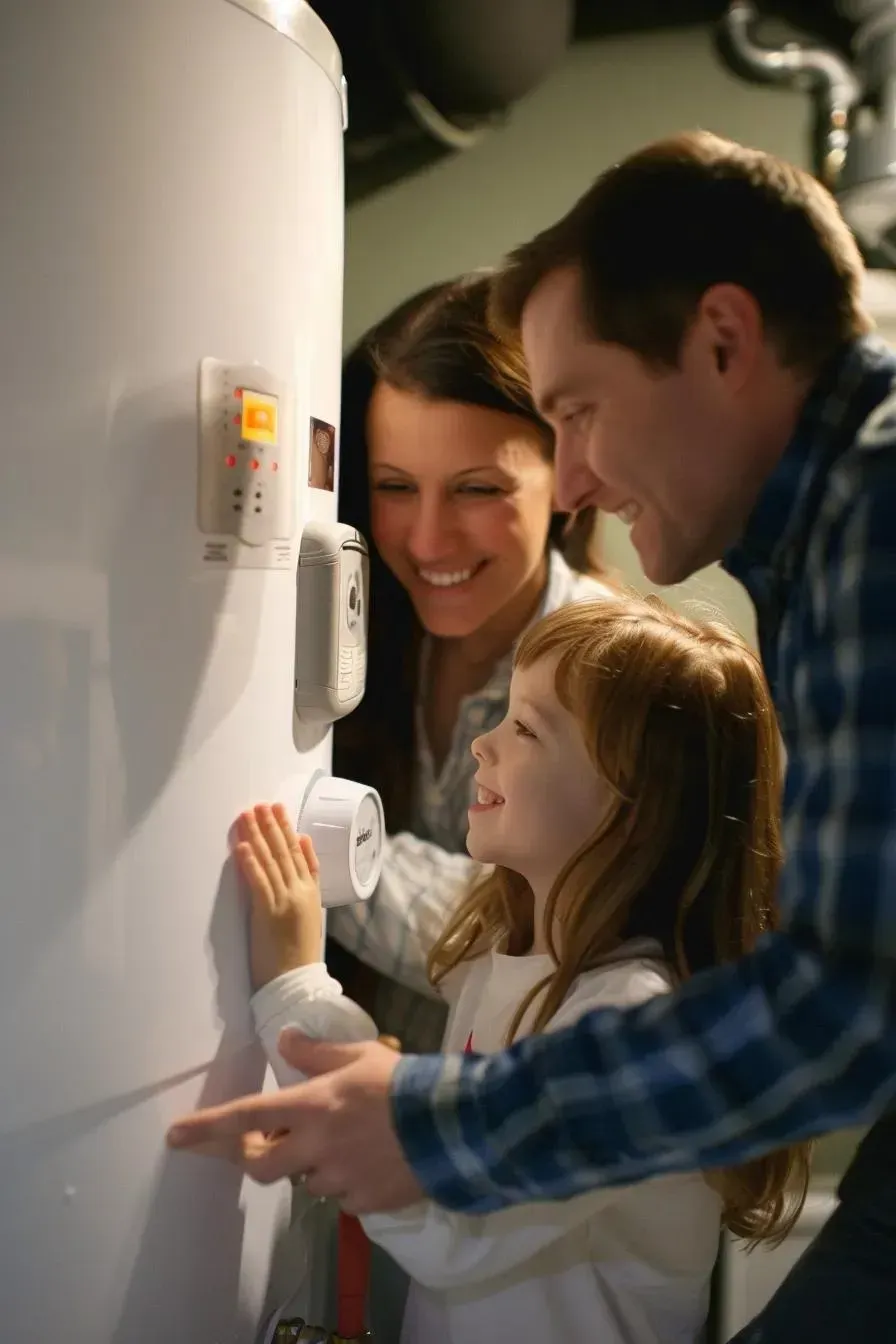
By heating water only when you need it, tankless units offer several compelling benefits:
- Energy Efficiency – They eliminate standby heat loss, which can cut your energy bills by up to 24%–34% for typical household usage.
- Endless Hot Water – They provide a continuous flow of hot water, meaning you can run multiple fixtures at once without running out.
- Longer Lifespan – Built with durable components, these units typically last 20+ years with proper care and maintenance.
- Compact Design – Their wall-mounted nature frees up valuable floor space in your utility areas.
Energy Efficiency of Tankless Water Heaters
Tankless water heaters are considerably more energy-efficient than older tank-style models. For homes using 41 gallons or less of hot water daily, tankless heaters can be 24%–34% more efficient than traditional storage tank water heaters.
Tankless Water Heater Lifespan
Tankless water heaters generally last between 20 to 30 years, which is about double the lifespan of a standard storage tank water heater.
These advantages often make the higher initial investment worthwhile for homeowners looking to boost their home’s efficiency and get a system that lasts longer.
What Are the Cons of Tankless Water Heaters?
On-demand systems do come with a few installation and usage considerations:
- Higher Upfront Cost – The units themselves, plus any necessary venting or electrical upgrades, can sometimes double the initial expense.
- Installation Complexity – They might require larger gas lines or dedicated, high-amperage electrical circuits.
- Flow Rate Limitations – Most gas models deliver around 5–7 gallons per minute (GPM), so running too many high-flow fixtures at once could potentially lower the water temperature.
- Cold Water Bursts – Sometimes, when you pause usage briefly, you might get a short burst of cooler water before it heats up again, which can affect shower comfort.
Weighing these factors helps homeowners decide if the benefits of on-demand hot water truly align with their household’s usage habits and existing infrastructure.
When Are Tankless Water Heaters Best Suited for Denver Homes?
Denver families who frequently use multiple hot water appliances simultaneously and have modern electrical or gas systems will likely see the biggest benefits from tankless units. Homes aiming to lower utility bills, reclaim floor space, or invest in equipment with a longer lifespan will find the on-demand approach very appealing. For properties that are already undergoing HVAC and plumbing upgrades, installing a tankless unit at the same time can prevent future costly retrofits, ensuring predictable savings and an endless supply of hot water.
How Do Tankless and Tank Water Heaters Compare: Cost, Efficiency, and Performance?
Let’s break down the key differences side-by-side to help you make a well-informed decision.
| System Type | Purchase & Installation Cost | Annual Operating Cost |
|---|---|---|
| Tank Water Heater | $800–$1,500 purchase; $600–$1,000 install | $400–$600 energy bills |
| Tankless Water Heater | $1,200–$2,500 purchase; $1,500–$3,000 install | $300–$500 energy bills |
What Is the Initial and Long-Term Cost Comparison?
Tank models generally have a lower initial price tag but will cost more to run over their lifespan. Tankless units require a larger upfront investment for the equipment and potential upgrades to your electrical panel or gas lines, but they pay for themselves through lower utility bills, often within 7–10 years for many Denver households.
How Do Energy Efficiency and Environmental Impact Differ?
By eliminating the energy wasted on keeping water hot in a tank, tankless heaters can achieve up to 34% greater energy savings for homes using less than 41 gallons daily, according to Energy.gov. Traditional storage models constantly heat water, leading to continuous heat loss and a higher carbon footprint over time. Choosing on-demand systems helps reduce greenhouse gas emissions and aligns with Colorado’s commitment to energy efficiency.
Colorado Energy Efficiency Goals
The Colorado Public Utilities Commission (PUC) has set ambitious goals for building electrification, particularly for Xcel Energy, the state's largest utility, and is actively working to reduce greenhouse gas emissions.
How Does Hot Water Availability and Flow Rate Compare?
Tank heaters can deliver their entire stored volume at once, but they need time to reheat the water. Tankless systems, on the other hand, provide a continuous flow of hot water, typically between 2–7 GPM depending on the specific model and energy source. If you’re running multiple showers and appliances simultaneously, a tank system might struggle if its capacity isn’t large enough, whereas tankless units can maintain flow until their heating capacity is reached.
What Are the Differences in Lifespan, Maintenance, and Reliability?
Tank units usually last about 10–15 years and require occasional maintenance like replacing the anode rod and flushing out sediment annually. Tankless systems often last over 20 years, with regular descaling and filter cleaning being the main maintenance tasks. Both types benefit greatly from professional servicing, but on-demand units generally offer superior durability when properly maintained.
How Do Space Requirements and Installation Complexity Vary?
Storage heaters typically take up 3–5 square feet of floor space and need adequate venting or circuit capacity. Tankless units are mounted on walls, saving floor space, but often require upgraded gas lines or dedicated 200-amp electrical panels for electric models. Ensuring proper venting, combustion air supply, and correct wiring through expert installation is crucial for maximizing safety and performance.
What Denver-Specific Factors Affect Your Water Heater Choice?
Local regulations, available incentives, and environmental conditions all play a role in how water heaters perform and how affordable they are in the Denver Metro Area.
What Are the Typical Installation Costs and Permit Requirements in Denver?
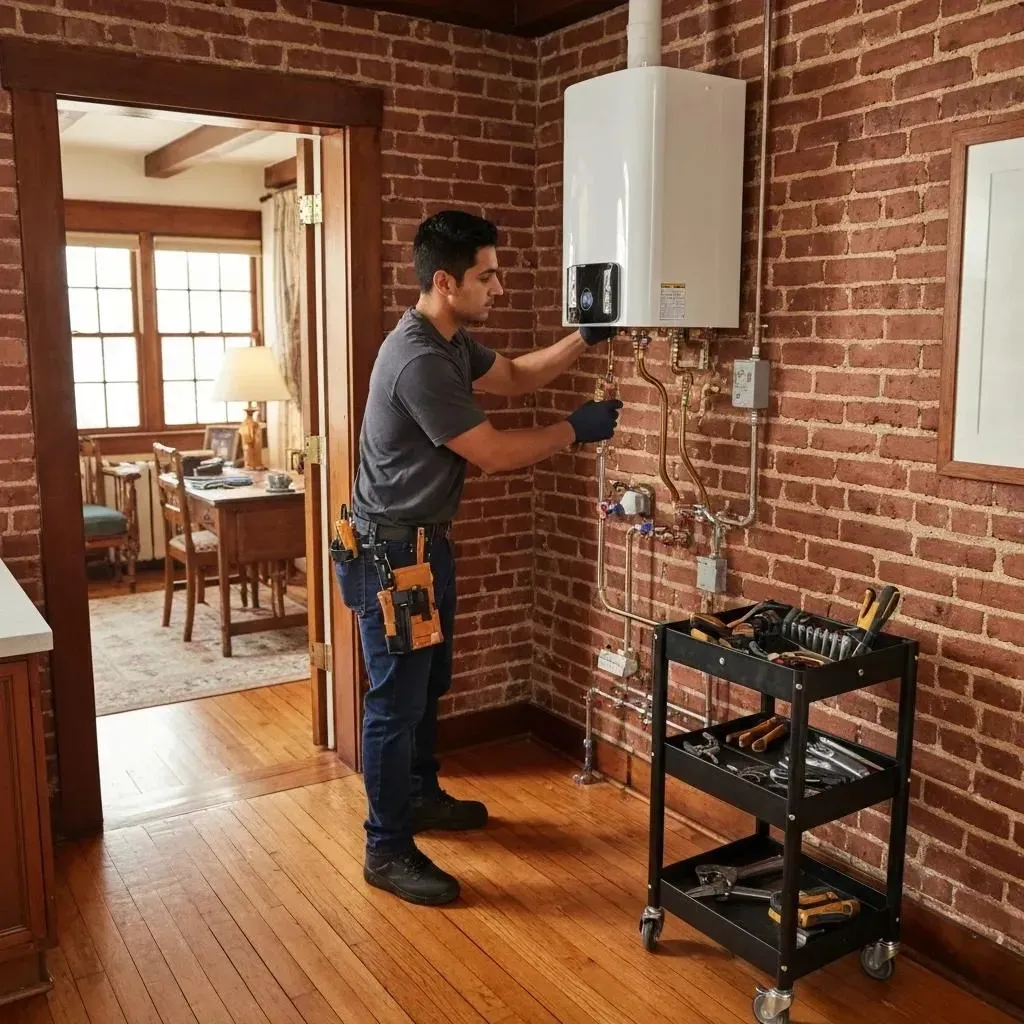
In Denver, installation costs typically range from $1,000–$2,500 for tank systems and $2,500–$5,500 for tankless setups. Permits for plumbing, gas lines, or electrical work usually cost between $100–$300 each, and inspections are required to ensure everything meets code and operates safely.
Which Rebates and Incentives Are Available for Energy-Efficient Water Heaters in Colorado?
Colorado homeowners can take advantage of several rebate programs:
- Xcel Energy offers a High-Efficiency Water Heater Rebate of up to $750.
- Efficiency Colorado provides rebates of up to $500 for qualifying on-demand units.
- Federal tax credits are available, covering 10 percent of the equipment cost for ENERGY STAR® certified models.
Denver Water Heater Rebates
Denver homeowners can access valuable rebates for energy-efficient water heaters, including options for heat pump water heaters.
How Do Denver’s Climate and Altitude Impact Water Heater Performance?
Denver’s elevation of 5,280 feet and cooler incoming water temperatures (around 40–50 °F) mean storage tanks take longer to recover and on-demand heaters need more energy to heat the water. High-efficiency condensing tankless units can help offset these altitude effects by capturing extra heat from exhaust gases, leading to better overall performance in our mountain climate.
Denver's Climate and Water Heater Performance
Denver's high altitude and cooler incoming water temperatures can increase the recovery time for storage tanks and require more energy for on-demand heating systems.
What Should You Know About Electric Water Heater Hookup and Safety?
Electric water heaters, especially tankless models, require careful electrical planning and professional installation to ensure they are safe and meet all building codes.
What Are the Electrical Requirements for Tankless Electric Water Heaters?
Most electric tankless heaters need a 100–200 amp electrical service panel and dedicated 60–150 amp circuit breakers. Individual circuits use appropriately sized copper wiring based on the amp load, and surge protection is recommended to guard against voltage spikes. Proper grounding and GFCI protection are essential to prevent electrical shock hazards.
Electric Water Heater Safety
Electric water heaters demand meticulous electrical planning and professional installation to guarantee safety and compliance with codes. It’s crucial to use the correct circuit breaker size as specified by the manufacturer.
How Do You Choose the Best Water Heater for Your Denver Home?
Selecting the ideal system involves matching your household’s specific needs, budget, and future goals with the capabilities of different water heater types.
What Key Factors Should Denver Homeowners Consider?
Homeowners should carefully evaluate:
- Your family’s size and peak hot water usage patterns.
- The available space in your home and your current electrical panel or gas line capacity.
- Your budget for the initial investment versus the potential for long-term savings.
- Whether you prioritize an endless supply of hot water or the simplicity and reliability of a traditional tank.
These factors will help guide your system selection, connecting your daily usage habits with the technical requirements of each option.
What Expert Recommendations Does Accountable Home Services Offer?
At Accountable Home Services, we recommend sizing water heaters based on your specific GPM needs, confirming that your electrical or gas supply is adequate, and comparing the total cost of ownership over a 15–20 year period. We provide transparent upfront pricing and detailed cost breakdowns, tailoring solutions to fit the unique profile of each Denver residence.
Why Choose Accountable Home Services for Your Water Heater Needs in Denver?
Accountable Home Services combines round-the-clock emergency service, honest pricing, and expert craftsmanship to give you peace of mind and ensure lasting performance from your new water heater.
How Does Our 24/7 Availability Benefit You?
When you have a water heater emergency, you can’t wait. Our licensed technicians are available 24/7 to restore your hot water service quickly, preventing discomfort and potential property damage.
What Makes Our Upfront Pricing Transparent and Honest?
We provide clear, detailed quotes that itemize equipment, labor, permits, and any applicable rebates, so you’ll never encounter hidden fees during your installation or replacement project.
How Does Our Expert Workmanship Ensure Reliable Results?
Our team utilizes advanced diagnostic tools, installs high-efficiency components, and follows proven best practices to ensure your tank or tankless water heater is installed, serviced, and maintained for peak performance and maximum longevity.
Discover the difference that comes from working with trusted local experts—contact us today for a personalized water heater solution that fits your Denver home’s needs and budget.
Call us now to schedule your personalized consultation and secure reliable hot water for years to come.

